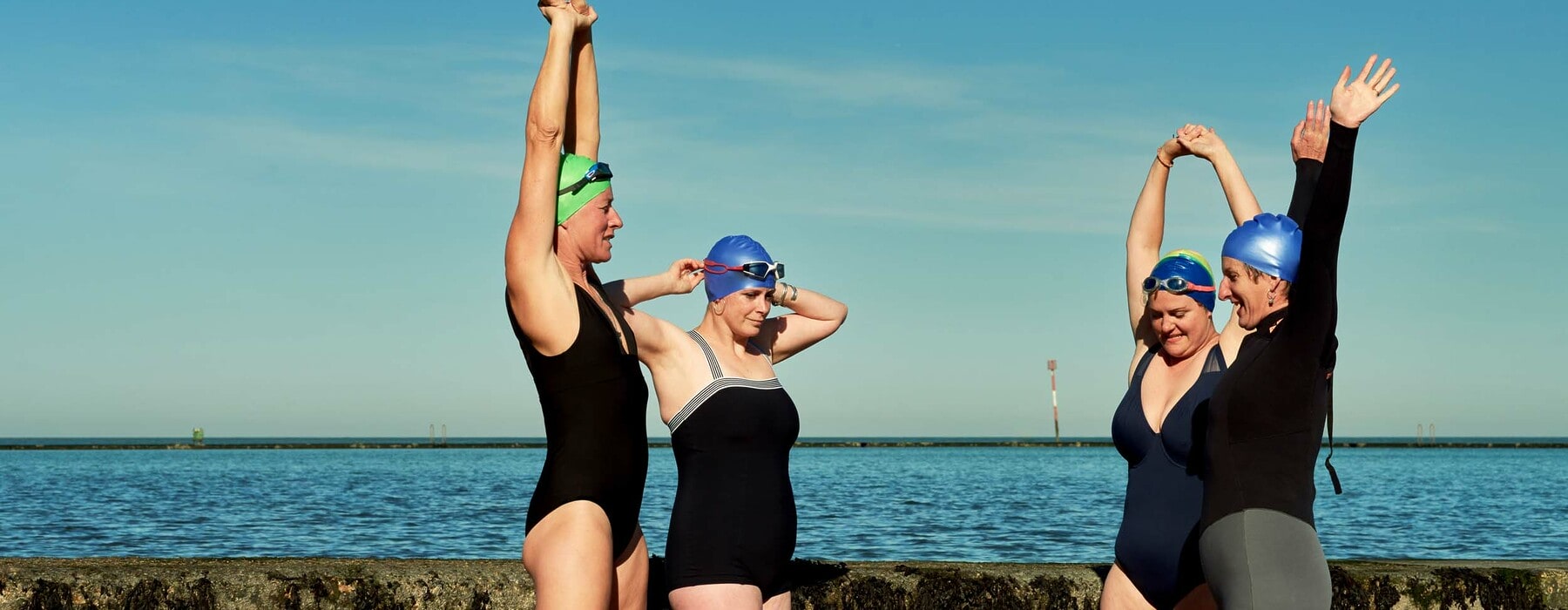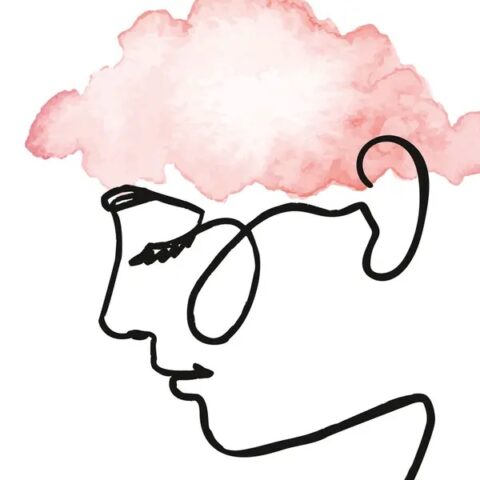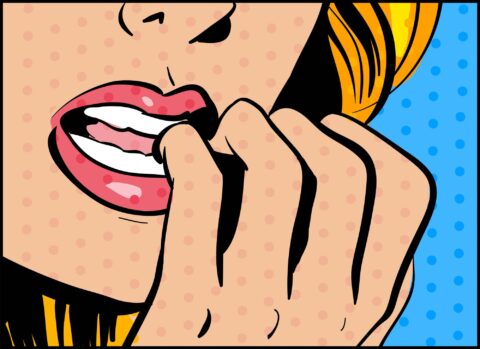If you’re worrying about your wobbly bits as menopause approaches, take heart. In this extract from Niki Bezzant’s book This Changes Everything, she reveals there’s a lot you can do to ward off weight gain and feel stronger and healthier.
You don’t have to go far on social media when you’re a perimenopausal woman to find yourself bombarded with posts about “cures” for weight gain in menopause. Click on a link and you might find yourself filling in a quiz about your menopause symptoms, which might then go on to “diagnose” you – and then of course offer you a solution to all your woes.
One I saw recently did just that – I was told I was a “Type 1” hormone profile. The email then went on to advise that all my problems are likely down to my gut bacteria and – wouldn’t you know it – they can be solved by spending just US$49 per bottle for a one-month supply of their special formula of probiotics.
This kind of shit makes me so mad. I’ve worked in the nutrition and food media for over 20 years, and if there’s one thing that’s a constant in that game, it’s companies making big bucks by exploiting women when they’re at their most vulnerable. The information in that email appears to be completely unproven, even though it sounds science-y. There are no hormone “types”. (And just by the by, I really don’t need to be told this by an outfit headed by a man.)
What these companies are doing is poking at one of the biggest (pun intended) issues for women around perimenopause and menopause, probably the main one after flushes and mood issues: weight gain. Especially around the middle.
There’s a bit to unpack here, so let’s get into it. What is clear is that weight gain at this time of life is extremely common. Even if we don’t gain weight, there’s a redistribution; a shift to more fat around the trunk and waist. We tend to feel we’re getting a bit softer and squidgier.
There’s a few reasons why this happens. And not all of it is hormonal, which is good news. This is not a thing over which we have zero control.
What we can’t control is hormones, and there is evidence that hormonal change in midlife women – in particular the loss of oestrogen and testosterone – drives an increase in body fat, especially around the middle.
Endocrinologist Dr Anna Fenton explains why the weight goes on around our middles: “It’s thought to be because when the oestrogen starts to drop, there is a greater degree of insulin resistance, which means the body tends to more routinely store food as fat.”
This weight shift thing can be tough to take. It may make us feel less feminine, less sexy, and a bit like we don’t have control of our own bodies. We can’t control some of this redistribution, sadly, despite what we might see on social media about programmes, supplements and workouts claiming to “torch” menopausal belly fat.
The other bit we can’t control is simply ageing. It happens to all of us – men and women – and with it comes a slowing down of our metabolism. So even without any hormonal chaos going on, if we eat the same way we did at 30, or – as often happens in midlife – start to eat or drink a tad more, we’re going to see weight gain.
Alongside the slowing metabolism that comes with ageing is a loss of muscle mass. This is an important one, especially for women, because it happens to us more and faster than it happens to men. For women it’s compounded by menopause. Loss of muscle starts in our twenties. Scientists say we lose an average of 0.4-0.8kg of muscle per decade. As women we really need to think about this – and work on it – in midlife, because it really matters later on down the track.
Muscle loss tends to also mean fat gain. Muscle doesn’t “turn into” fat – that’s a myth. But muscle is more metabolically active than fat – meaning it burns energy better. The more muscle we have, the more energy our bodies burn, and the leaner we stay. Conversely if we start to lose muscle, we burn energy less efficiently, so any excess we take in tends to stick around. Cue the accumulation of more fat and wobbly bits. It’s yet another vicious cycle.
While I really hate that phrase – meno-belly, ugh – it’s something many of us instantly recognise. Right? And the good news is, there’s a lot we can do to at the very least make ourselves feel better about our midlife midsection.
What We Can Control – Weight
Despite the belly-fat situation, the evidence shows that overall weight gain at perimenopause – which averages about half a kilo a year – is not associated with hormonal change. In other words, menopause doesn’t make us gain weight on its own.
Weight gain in midlife can also be down to lifestyle factors, and – in a small silver lining – this is something we can influence. The first thing to think about here is how and what we’re eating – food being far more influential on weight than exercise. Sometimes we’re either not aware of what we’re eating or we’re in a teeny bit of denial about it.
Here’s when it can be useful to do a bit of an audit: What am I really eating and drinking? How much am I really exercising? Tracking these things – while it’s not ideal to do all the time – might be a reality check that can help us to reset.
Using one of the free apps that tracks food and exercise for a couple of weeks might throw up some surprises we can easily tweak. When I did it recently, I discovered the little extras in the form of snacks and treats that had crept into my diet: the biscuits after dinner or for morning tea; the extra milky coffees; the pre-dinner potato chips; or the extra wines on weeknights, instead of just at weekends.
All these little things – when added in on top of hormonal and age shifts that mean our bodies are slower than they used to be – can add up, and can mean a slow but steady weight gain.
It’s worth highlighting alcohol here. Yes, we like it, and with all the other chaos going on, it can feel like that glass of wine – or two or three – at the end of a hectic day is a true friend and lifesaver.
But honestly, the more I look at this, and no matter how I try to spin it, I can’t help but come to the conclusion that alcohol is not our friend in midlife. Apart from the negative impact it has on many of the menopausal symptoms that bug us – it promotes hot flushes and stress and messes with our sleep, for example – it is shocking how much regular alcohol consumption can add serious empty excess calories.
Three medium-sized glasses of wine, for example, has similar calories to seven slices of bread. How often would you add seven slices of bread to your meal? Yet we might easily drink three glasses of wine on a night out with friends.
So, What’s The Plan?
I am never going to say “go on a diet”. As anyone who’s ever dieted knows, the chances of keeping any weight off once you’ve come “off” a typical diet regime is practically zero. What’s more, many diets encourage unhealthy, unsafe or just plain stupid eating plans.
That said, I’m not going to say “don’t go on a diet”, either. There’s evidence that if you’re overweight or obese – which 60 per cent of us are – weight loss, however it’s achieved, can have lots of benefits for overall health.
What I will say is that before you go on that diet, promise me you’ll ask yourself this: Is this diet something I can do for the rest of my life? Can I do this every day, every week, every year, until the end of my life? Because that’s what you’re probably going to have to do to maintain a lower weight.
If you think you can happily never eat another bowl of pasta again, sure, give keto a crack. Or if you believe you’ll be able to keep on eating next to nothing for two days out of five for the rest of your life, try that fasting diet. You can’t expect to do a 12-week programme and then go back to eating how you are now. Do that and you’ll end up where you started, probably with a bit extra on top as your body compensates for the slower metabolism you’ve created by dieting.
We need to make permanent change. So it’s time to look at eating for health, not weight. Remember: we need to look after our brains; our hearts; our bones; and our guts to be vibrant, healthy old ladies. If we do this, along the way, with a bit of luck, the weight thing will also sort itself out to a point we’re happy with. And this is something we can do for the rest of our long and happy lives.
The Other Piece Of The Puzzle: Exercise
All through our lives, but especially at midlife – exercise matters. Not only does moving our bodies help with stress and sleep – which both impact on weight – but exercise helps keep our muscle mass up. Muscle burns more energy than fat, even when we’re at rest. The more muscle we have, the easier it is for us to keep weight off.
Exercise physiologist Kylie Harwood, who works with many older women in her Kāpiti Coast clinic, says we need to think about this in midlife, or ideally before.
“It’s really important to make sure you have as much muscle as possible leading into the menopause period, because muscle loss does get accelerated during that time. It gets accelerated even further when you’re older.”
It’s recommended that for good health we do around 150 minutes of exercise a week. That’s around 20 minutes a day, so pretty achievable, especially when you keep in mind that everything counts: 10 minutes here or five minutes there – walking to the bus; taking the stairs to your meeting.
The good news is, exercise can be fun and make us feel amazing, and it has so many benefits; as one expert told me, if it were a pill, it would be a bestseller.
The type of exercise we do matters. Kylie says a variety of exercise is important: “So you can have high-intensity exercise – that’s anything where you’re getting your heart rate up to its maximum level.”
Strength training in particular has huge benefits for women in midlife and beyond. That means weights or body-weight exercises: things that are challenging for our muscles so they can be stimulated to grow, increasing our muscle mass and protecting our bones. Plus add in some flexibility and mobility training too.
Kylie says consistency with strength training is key, and so is increasing the work we’re doing as we get stronger.
“It’s important that you’re doing it consistently, and that you’re gradually increasing the amount of weight that you’re lifting. Then you’re going to get the overload, and you’re going to get increases in your muscle mass and muscle size.”
Weight training should feel hard, every time. “For example, if you’re doing an exercise and you’re doing two sets of 12 repetitions, you want it to feel hard on your last two repetitions,” says Kylie.
“When it starts to feel easy again, then you know you’re ready to increase your weights.”
Weight Training Works For Me
I can vouch for the power of weights and strength training. In my early forties, I discovered what I’d suspected for a while: though I was not overweight, I had, in the preceding decade, lost muscle and gained fat. Though I’d been doing Pilates for years, and outwardly I looked lean-ish, inside I was not. And I was not very strong at all.
Seven years down the track, high-intensity strength training has made a profound difference to my body. In the space of a year I lost significant fat and gained muscle, and the squidgy bits that were developing about my mid regions receded. To get my balance right, I do two strength training sessions a week. At my gym, bless them, they understand the importance of recovery, and they won’t let me (or anyone) train too often; trust me, I’ve tried, and they’ve told me gently but firmly to go and do something else.
So on non-weight days I do something lower intensity, usually just walking for half an hour or so. I know that being strong and fit is not a destination, it’s a journey, and I need to keep changing it up if I want to keep the benefits going. I absolutely love seeing the ladies in their seventies and older at my gym, doing weights. They’re my inspiration, and they give me hope for a vibrant and strong old age.
RELATED ARTICLE: Feeling The Heat: Why Do We Know So Little About Menopause







